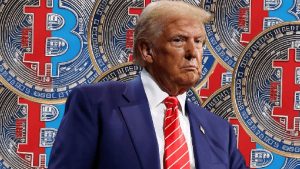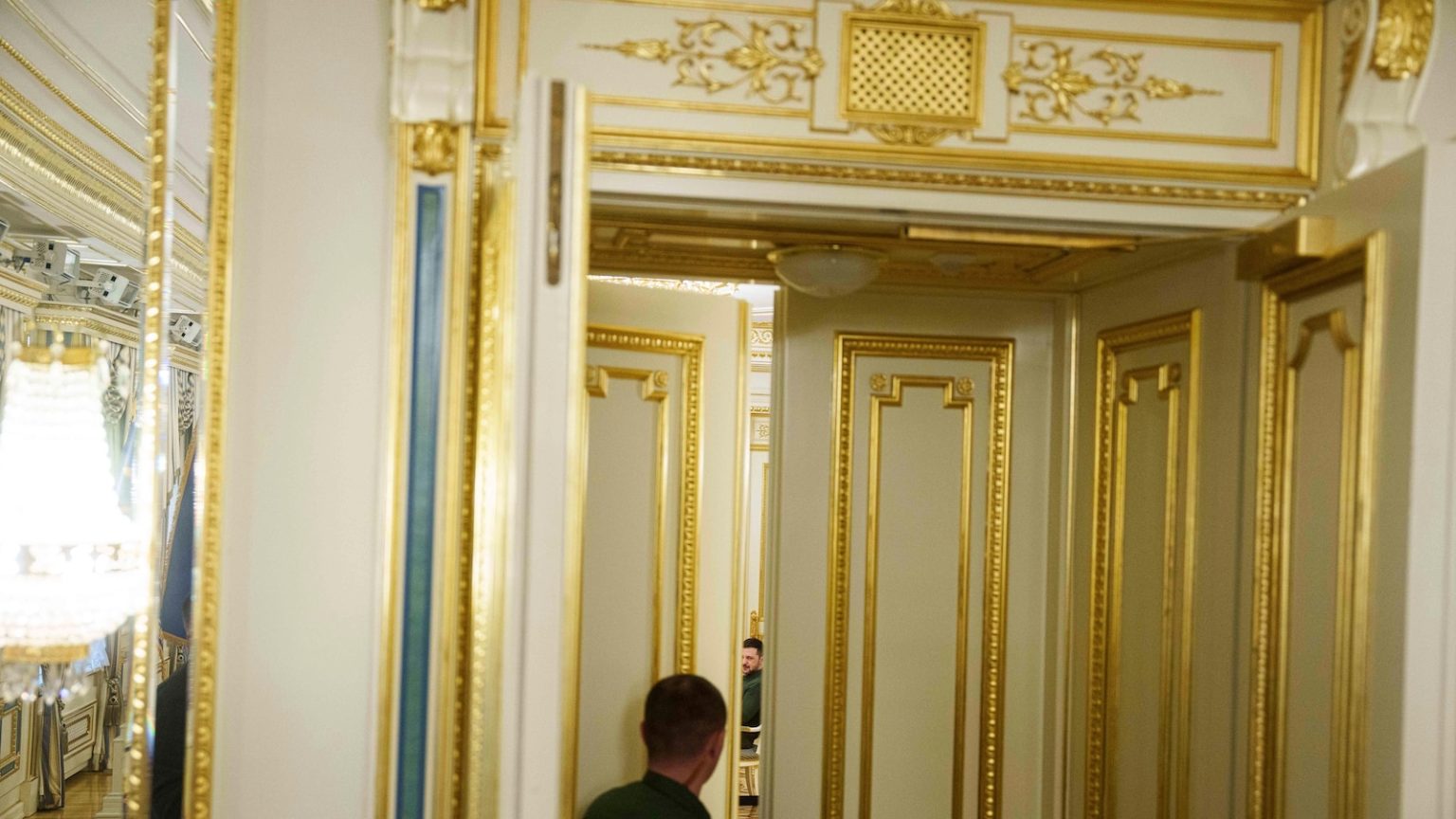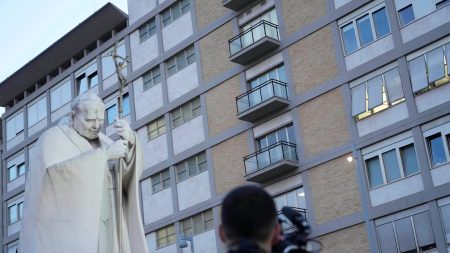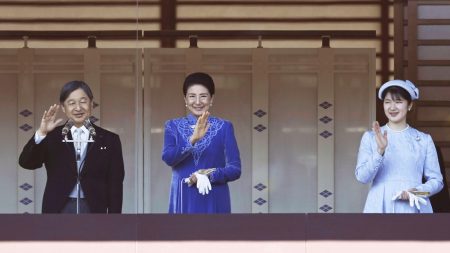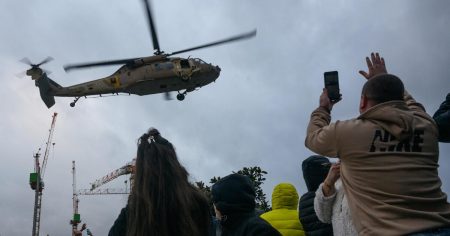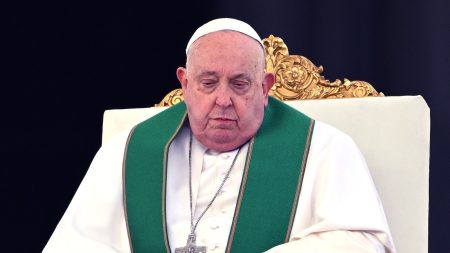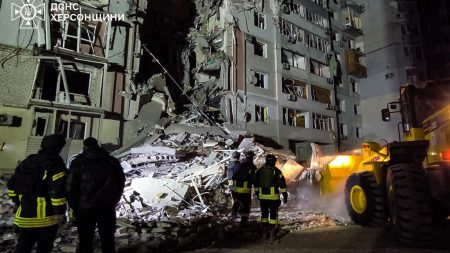A Nation on Edge: Ukraine Faces a New Threat from an Unlikely Ally
As the third anniversary of Russia’s full-scale invasion of Ukraine approaches, the mood in Kyiv and across the country is palpably tense. The somber atmosphere mirrors the fear and uncertainty that gripped Ukrainians in the days leading up to the war in 2022. However, this time, the anxiety is not solely directed at Russia, the longtime adversary, but also at a more surprising foe: the United States. Once Ukraine’s most steadfast ally, the U.S. seems to be wavering in its support under the leadership of former President Donald Trump. Trump’s recent echoes of Russian President Vladimir Putin’s narratives have sent shockwaves through Ukraine, leaving many to wonder if they are now fighting a war on two fronts—one against Russia and another against the erosion of Western solidarity.
For Ukrainians, Trump’s sharp criticism of President Volodymyr Zelenskyy, whom he falsely labeled a “dictator,” has been nothing short of bewildering. Many in Ukraine, along with some Republican lawmakers in the U.S., are struggling to grasp how a leader who once championed their cause could so abruptly align himself with Putin’s disinformation. “It feels like the whole world is against us,” said Kateryna Karaush, a 25-year-old tech worker from Kyiv. This sentiment reflects a growing sense of isolation among Ukrainians, who have relied heavily on U.S. military aid to fend off Russia’s relentless advances. Despite being outgunned and outmanned, Ukraine has managed to preserve its sovereignty, though roughly one-fifth of its territory remains under Russian control. Yet, after three years of war, the human cost is staggering: hundreds of thousands killed or wounded, tens of thousands missing, and millions displaced.
A Rallying Cry: Ukrainians Unite Behind Zelenskyy
In the face of Trump’s criticized remarks, Ukrainians have rallied around their embattled leader, President Volodymyr Zelenskyy. Publicly, Zelenskyy has called out Trump for amplifying Russian disinformation, a move that has earned him both admiration and criticism. While many acknowledge Zelenskyy’s imperfections, there is a widespread consensus that he is no dictator. “Yes, he’s not a perfect president, but he’s not a dictator,” Karaush said. Even opposition lawmakers, who have previously clashed with Zelenskyy, are now defending him. Yaroslav Zhelezniak, a member of the opposition party Holos, emphasized that only Ukrainian citizens have the right to judge their leader. “He is our elected president,” Zhelezniak said, “and we stand by him.”
This newfound unity is a testament to the resilience of the Ukrainian people, who have endured immense suffering over the past three years. The mood, however, has grown increasingly grim as Trump’s statements suggest a desire to broker a ceasefire on terms many believe favor Russia. Reports of secret U.S.-Russian meetings in Saudi Arabia to discuss a potential truce, without Ukrainian input, have only deepened the sense of betrayal. For many, the possibility of a peace agreement that compromises Ukraine’s sovereignty feels like a knife in the back.
The Cost of War: Exhaustion and Determination
The toll of the war is evident on both the battlefield and the home front. Ukrainian soldiers, though outnumbered and outgunned, remain determined to defend their country, even as they face mounting challenges. “Even if we don’t get enough weapons or if funding is cut, that doesn’t change our duty to fight,” said a Ukrainian officer, speaking anonymously from the front lines. “No shells? We’ll take up rifles. No rifles? We’ll grab shovels.” This resolve is a testament to the unwavering spirit of Ukraine’s armed forces, who have managed to hold back Russia’s slow but steady advances despite overwhelming odds.
Civilians, too, are bearing the brunt of the conflict. Millions have fled the country, while those who remain are grappling with the economic and emotional toll of war. In the northeastern city of Kharkiv, Larysa, a 52-year-old resident, summed up the sentiment of many Ukrainians: “We have a president whom we support. During war, we are united.” Yet, as the conflict drags on, the questions about how much longer Ukraine can endure loom large.
Elections and Disinformation: A Political Fault Line
A recent point of contention between the U.S. and Ukraine has been the issue of elections. Trump has echoed Putin’s demands for Zelenskyy to hold elections, falsely claiming that Zelenskyy’s term has expired and that he is ruling as a dictator. This narrative has gained little traction within Ukraine, even among opposition politicians. Many argue that elections cannot be held during wartime, as they would not only divide the nation but also provide an opportunity for Russian interference. “Elections are not needed right now,” said Volodymyr Ariev, a lawmaker from the opposition European Solidarity party. “They should only take place when we understand the framework of a peace agreement with Russia.”
Moreover, holding elections during the war presents significant logistical challenges. Millions of Ukrainians are displaced abroad or living in Russian-occupied territories, where voting would be nearly impossible. Additionally, around 800,000 Ukrainians are currently serving in the armed forces, making it difficult for them to participate in elections without weakening the military. “Holding elections before a peace agreement with security guarantees is signed would be devastating for Ukraine,” warned Valerii Pekar, a professor at Kyiv-Mohyla Business School. “The U.S. and Russia are now united in promoting the idea of ‘elections first, then peace’—which is the quickest and cheapest way to bring Ukraine down.”
The Future of Ukraine: Between Hope and Betrayal
As Ukraine teeters on the brink of a new era of uncertainty, one thing is clear: the next few months will be pivotal in determining the country’s future. The recent cancellation of a planned news conference between Zelenskyy and Trump’s envoy underscores the escalating tensions between the two nations. Meanwhile, public trust in Zelenskyy, though still significant at 57%, reflects the internal divisions that persist despite the external threats.
For now, Ukrainians remain resolute in their fight for sovereignty. “We may have different opinions about Zelenskyy,” said Zhelezniak, “but only Ukrainian citizens have the right to judge his support.” This sentiment encapsulates the pride and resilience that have come to define Ukraine’s resistance. Yet, as the shadow of Russian aggression looms large, and the once-unwavering support of the U.S. appears to waver, Ukrainians are left to wonder: will the world stand by them in their darkest hour, or will they be left to face the storm alone?


